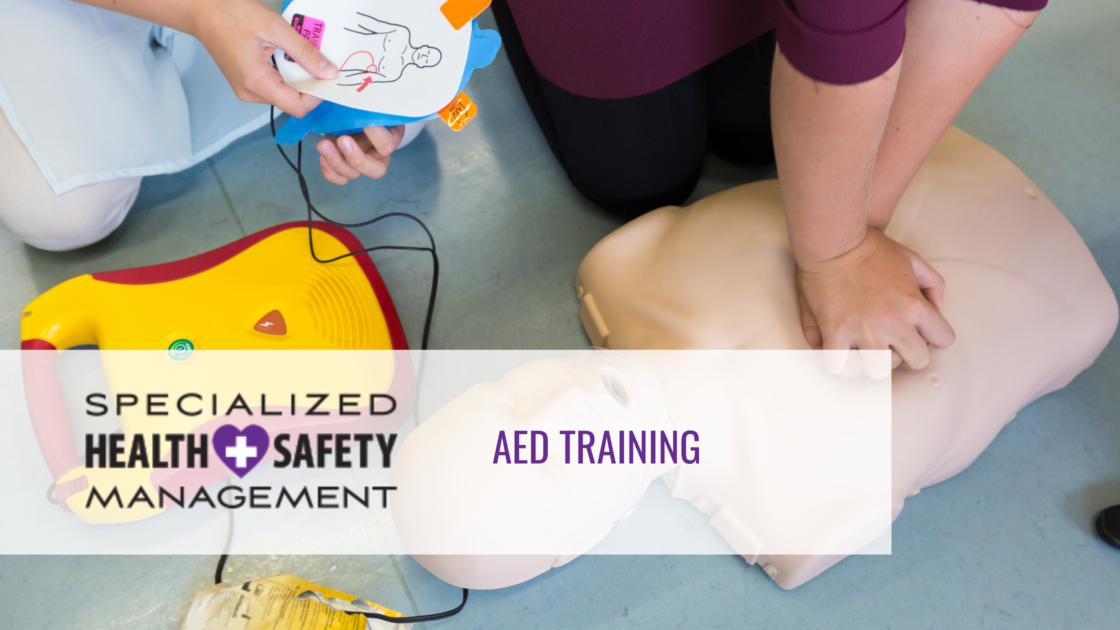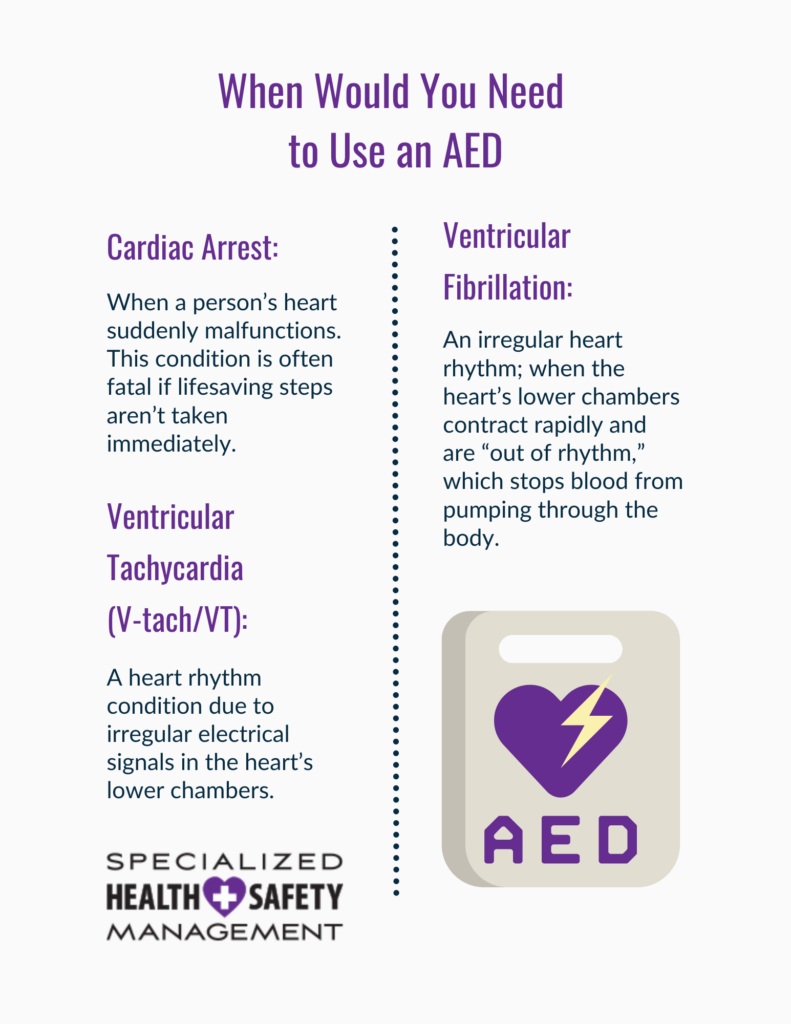
An automated external defibrillator (AED) is an advanced medical device that can help save the life of someone experiencing sudden cardiac arrest. They’re incredibly user-friendly, but there are training courses available. Who should get an AED certification, and how can they do it?
How Does An AED Work?
So, how does an AED work? When someone is in cardiac arrest or their heart stops, an AED analyzes the heart’s rhythm and determines if the person needs an electric shock (defibrillation). If so, the AED delivers the shock to restart the heart’s rhythm.
When Would You Need to Use an AED?
AEDs are audio-automated and will verbally walk you through the process, so they’re easy to operate. They’re even easier to use when adequately trained to be efficient in a medical emergency! You can use them in several cases.
- Cardiac Arrest: When a person’s heart suddenly malfunctions. This condition is often fatal if lifesaving steps aren’t taken immediately.
- Ventricular Fibrillation: An irregular heart rhythm; when the heart’s lower chambers contract rapidly and are “out of rhythm,” which stops blood from pumping through the body.
- Ventricular Tachycardia (V-tach/VT): A heart rhythm condition due to irregular electrical signals in the heart’s lower chambers.
What Is AED Training?
An American Red Cross AED training course teaches you how and when to use an AED device properly. While the device is designed for almost anyone to use, there’s more to saving a life than pushing a button.
Quick response is crucial to a cardiac arrest patient, as each minute someone in need of defibrillation waits, survival odds drop by 10 percent. With AED training, you’ll learn how and when to react to medical emergencies and operate the AED.
Why Should You Learn?
As of 2023, utilizing an AED is the only way to establish heart rhythm, which is why you’ll likely be able to find one in the case of an emergency. All 50 U.S. states have mandated by law that readily available AEDs be available in public locations–with the hope of a quick response to cardiac arrest.
Who Should Learn?
Everyone should learn! Sudden cardiac arrest affects 1,000 people daily and afflicts people of all ages – making it a national public health crisis. Do you know the average first responder response time after calling 911? 8-12 minutes. AED training courses prepare you to provide help with the use of an AED on kids and adults.
CPR & AED Training: What’s the Difference?
Cardiopulmonary Resuscitation (CPR) is an emergency lifesaving procedure used when the heart stops suddenly. While an AED is a device that shocks the heart back into rhythm, CPR uses the hands to compress a person’s chest and keep blood flowing.
When CPR is immediately performed after a cardiac arrest, the chance of survival can be doubled or tripled. When the heart stops, there’s a risk of severe organ failure, brain damage, or death in just 10 minutes. Every minute counts, so CPR is crucial to keep blood flow active until medical assistance arrives.
When cardiac arrest occurs, CPR and AED serve different purposes: CPR keeps the blood flowing, and an AED aims to restart the heart after it stops. A person’s survival odds are higher, nearly doubled, with CPR and an AED.

Where to Sign Up for AED Training
Specialized Health and Safety offers a variety of instructor-led, blended, and scheduled training classes available to individuals, businesses, and organizations. We even notify you 6-8 weeks before your certifications expire with the opportunity to renew and avoid a lapse in certification.
On-Site, Instructor-Led Courses
- Adult CPR, AED & First Aid
- Adult CPR & AED
- First Aid
- Basic Life Support
- Pediatric CPR, First Aid & AED
- SUID/Abusive Head Trauma
Blended Learning
- Pediatric CPR, AED & First Aid
- First Aid
- Adult CPR & AED
Scheduled Classes
- Pediatric CPR, First Aid, AED
- SUID/Abusive Head Trauma
Contact Specialized Health and Safety to browse classes, request a training date, or sign up to become AED certified!

